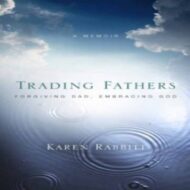"There's no perfection in this life, there's just
learning from our mistakes." When I worked with perfectionists, I tried to
teach them this jewel. I'd learned it myself, as a recovering perfectionist.
After attending the Christian Book Expo in Dallas this past weekend, as an
exhibiting author, I'm glad to report that we are learning from our mistakes.
Basically, nobody came. Expecting 15,000, we got 1500. In a huge hall like the
"F" area of the Dallas Convention Center, that felt like nobody. Feedback is flowing to the inboxes of the organizers, the Evangelical Christian Publishers Association. Online writer discussion boards are considering what authors can/could do to help with the next time. How should it be organized? A different venue? A different format? A different pricing structure? How should the publicity be handled? What went wrong?
Mistakes create the best learning. I still remember the right answer to a question I answered wrong in high school biology: "What's the largest organ in the body?" I don't recall my answer at the time. I remember the right answer. The skin. I remember it because it cost me something to learn it. I was used to getting almost all questions right on a test. That failure was a blow to my self-image. I'm guessing this failure, at CBE, is a challenge to some of the organizers' self-images.
Humility, of course, is a Christian virtue. Humility means facing mistakes honestly, seeing oneself clearly, and learning from the errors. I learned, in high school, that I wasn't as good a student as I thought. Mike Hyatt, the chairman of the Executive Committee for ECPA, is a particularly humble man. Not that I know him, but his blog demonstrates his character. What we will learn from CBE remains to be unveiled. But we will learn. The next event won't be perfect, either. But it will be better.
Father, where do we need to learn from our mistakes today? Show us your way, your process of growth toward holiness, wholeness, and the image of your Son.
